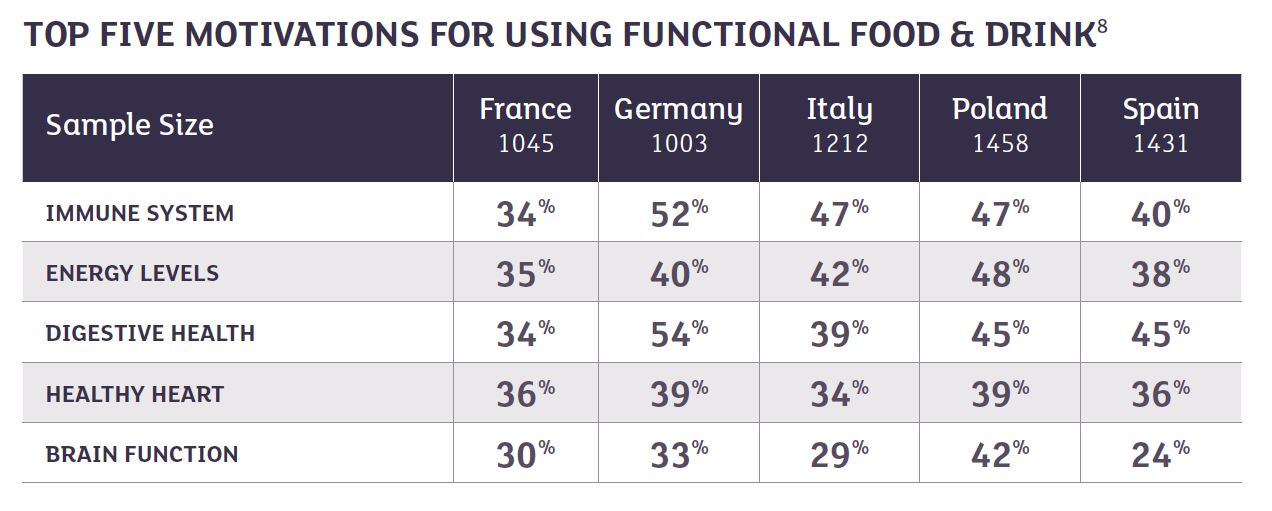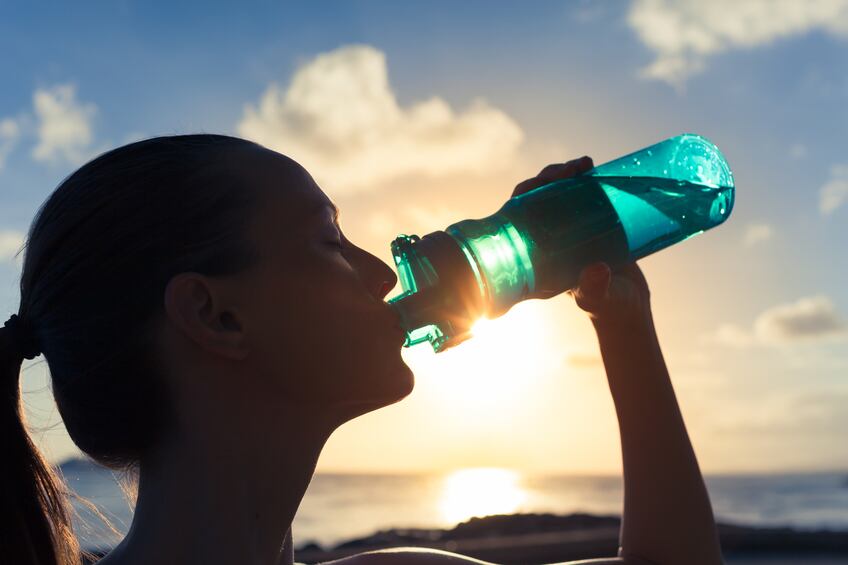The ingredient supplier said it is predicting increased demand for functional drinks as two-in-three consumers are now influenced by health and wellness when choosing what to eat and drink.
“Healthier food and beverage choices have long been on top of consumer’s mind, but in recent years we have seen a huge increase in interest towards holistic wellbeing,” observed Janka Reke, Kerry Strategic Marketeer for Beverages with Kerry Europe & Russia.
This is already having a significant impact on innovation in the F&B sector. According to Mintel’s new product database, product launches with functional claims increased by 19% between 2014 and 2018. And Kerry expects this trajectory to lift, insisting it represents a ‘significant opportunity’ for brands.
From sports enthusiast to lifestyle consumer
Kerry said that there has been a shift in demand for functional beverages, which were previously associated with sports enthusiasts.
Increasingly, what the company terms ‘lifestyle consumers’ are also entering the category. Kerry defines this consumer group as inclusive of healthy agers, vegans and vegetarians, and millennial women.
“These beverages were previously targeted towards a niche audience but are now widely available across multiples channels,” Kerry noted, pointing to growing distribution across supermarkets, health stores, foodservice and online.
Evolving consumer demand means that the type of functional claims most sought after is also changing. Functional needs sought by lifestylers encompass improved immunity and digestive health. Demand for products that are plant-based is ‘also on the rise’, according to Kerry.
“Consumers do not only want to consume beverage products that are lower in sugar, they are actively looking for added health-enhancing ingredients. The Covid-19 pandemic has further increased the importance of this trend,” Reke elaborated.
Kerry also flagged demand for products that delivered heightened energy levels, heart health, mental wellbeing, weight loss, cosmetic health and convenience.

In addition to personal wellbeing, Kerry also noted that consumers express a desire for products that are also good for the planet.
“We are also seeing that consumers are putting a growing emphasis on purchasing sustainable products. Almost two-in-three of European consumers would like to see companies to take a position on sustainability. For quality products, responsible and sustainable sourcing is key,” Reke added.
Expectations versus reality
One cloud on the horizon, according to Kerry, is that there is a gap between the functional benefits consumers believe products can deliver and the science behind these products.
It is ‘now more than ever’ important for brands to effectively communicate the advantages of their products, the ingredient company suggested. Indeed, if products fail to live up to consumer expectations, there is a risk that trust in the category could erode.
At the same time, beverage manufacturers must meet consumer expectations around taste and texture, as well as delivering the functionality they are demanding, Kerry claimed in its newly-launched e-book.
“Lifestyle consumers are looking for quality, backed ingredients that they can trust. They are also looking for products that are living up to their expectations around taste, texture and flavour,” elaborated Celia Ridet, Senior Technologist with Kerry.
The addition of fortification ingredients can have an impact on texture and mouthfeel, she continued. “A key challenge of creating fortified beverage products is the impact on texture and mouthfeel. Creating a tasty flavour profile and making sure that the off-notes from fortification are balanced out are key for the enjoyment of the product.”
What products have pulling power?
Kerry’s research highlighted the opportunity across a number of product segments, noting that beverages such as Kombucha and fortified waters were ‘non-existent’ on the marketplace up until a few years ago.
Kerry forecast a 10% compound annual growth rate (CAGR) for enhanced water sales from 2019-24, with RTD protein products expected to rise 9.2%, and protein powders expected to grow 7.8% over the forecast period.
Elsewhere, Kerry highlighted functional innovation opportunities for smoothies and ‘plant-based super drinks’.


